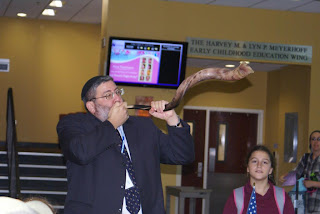Picture : peterfaur.com
The
conclusion of the High Holiday season marks the transition to the heart of the
school year and a focus on academic achievement. The primary goal for parents and teachers
alike is to see our children and students succeed both in school and in
life.
What lessons
and guidance can we provide our children to place them on the path of
success? Lord Rabbi Jonathan Sacks
provides us some insight into this process in his recent weblog (10/13/12) entitled “Credo: More than we have faith in
God, God has faith in us”. He says:
“What
makes some children succeed while others fail? More generally, what drives some
people to great achievement while others languish, their dreams unfulfilled?
That is the question that intrigued American writer Paul Tough. His answer is
contained in his book How Children Succeed, published last month.
Tough
discovered that what makes the difference is not intelligence, skill or native
ability. It isn’t cognitive at all. The difference, he argues, lies in
character, in traits such as discipline, persistence, self-control, zest,
gratitude, optimism, curiosity, courage and conscientiousness. One dimension,
though, matters more than all the others. He calls it grit: the ability to keep
going despite repeated failures and setbacks. People with grit grow. People
without it are either defeated by life’s challenges or – more likely – become
risk-averse. They play it safe.”
It may seem
counter intuitive that cognition, intelligence or skill will not solely
pre-determine a person to great accomplishments, rather, learning to deal
effectively with challenges and adversity is the most important lesson of
all. We see this all the time in
educational settings and in life – children are always learning from their
mistakes. We need to teach our kids
what “grit” means - how to get-up, dust
off their pants, stand tall and prevail
over limitations and shortcomings. In
my office, there hangs a sign stating “We all make mistakes. It is what we happens after we make the
mistakes that matters.”
Mistakes,
failures and difficult situations do not cease to exist when a child leaves the
protective confines of school. Trials
and tribulations continue throughout one’s life. Many of us both in our personal,
professional and even our communal lives have faced disappointments and
setbacks. What gives us the “grit” or the resolve to continue? Rabbi Sacks provides
some personal insight into this question as well. He says,
“ I learned to embrace failure instead of
fearing it. Why? Because at some point on my religious journey I discovered
that more than we have faith in God, God has faith in us. He lifts us every
time we fall. He forgives us every time we fail. He believes in us more than we
believe in ourselves. He mends our broken hearts. I never cease to be moved by
the words of Isaiah: “Even youths grow tired and weary and the young may
stumble and fall, but those who hope in the Lord renew their strength. They
soar on wings like eagles, they run and don’t grow weary, they walk and don’t
grow faint.”
The
greatest source of grit I know, the force that allows us to overcome every
failure, every setback, every defeat, and keep going and growing, is faith in
God’s faith in us.”
When
children see their parents and teachers acknowledging, embracing and dealing
with disappointment head on, they too will learn that is it OK to fail – as
long as it is followed by a renewed commitment to solving the problem and
learning from the experience. As we wish
and hope that our children and students achieve much success in school and
throughout their lives, let us also hope that they are given the strength and “grit”
needed to overcome whatever setbacks come their way. May they always have faith
in G-D and more importantly remember that G-D has faith in each one of
us.



